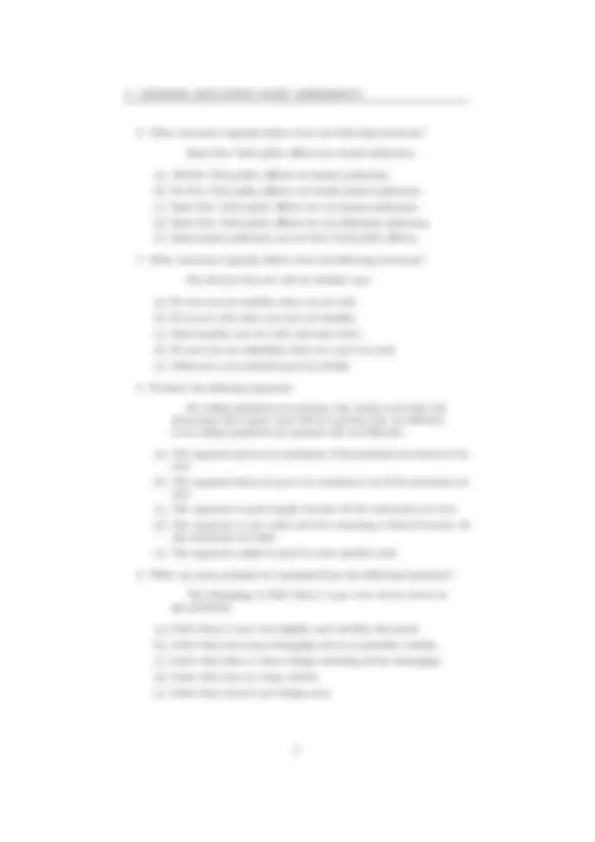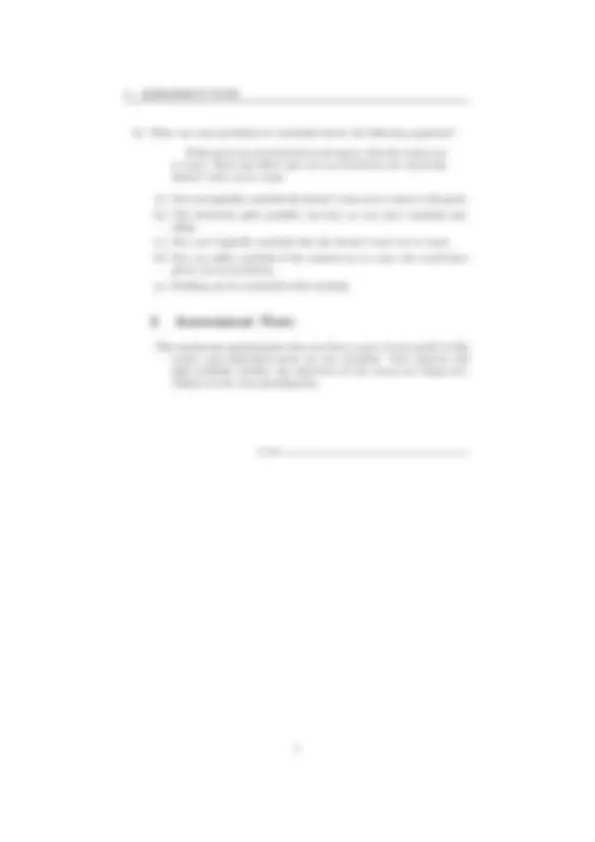




Study with the several resources on Docsity

Earn points by helping other students or get them with a premium plan


Prepare for your exams
Study with the several resources on Docsity

Earn points to download
Earn points by helping other students or get them with a premium plan
Community
Ask the community for help and clear up your study doubts
Discover the best universities in your country according to Docsity users
Free resources
Download our free guides on studying techniques, anxiety management strategies, and thesis advice from Docsity tutors
Material Type: Exam; Professor: Archie; Class: Introduction to Logic; Subject: Philosophy; University: Lander University; Term: Fall 2002;
Typology: Exams
1 / 4

This page cannot be seen from the preview
Don't miss anything!



The following questions reflect some of the aims of our Introduction to Logic Course. Choose the best response in each of the following questions, and circle the letter corresponding to the best answer.
This assessment questionnaire does not form a part of your grade in this course, and individual scores are not recorded. Your answers will help establish whether the objectives of the course are being met. Thank you for your participation.
name